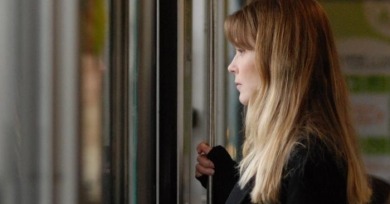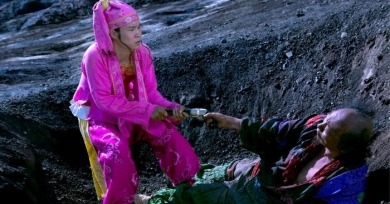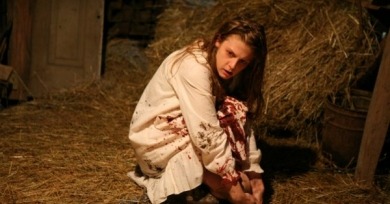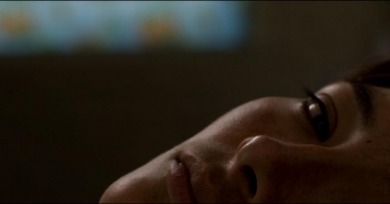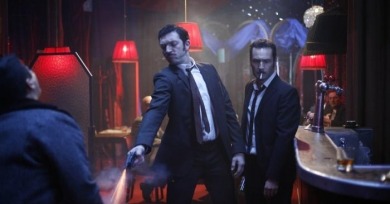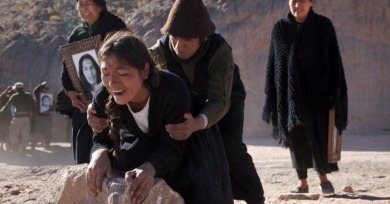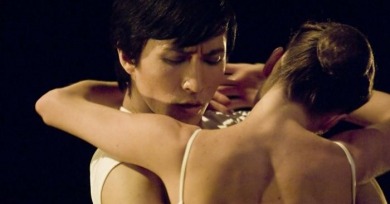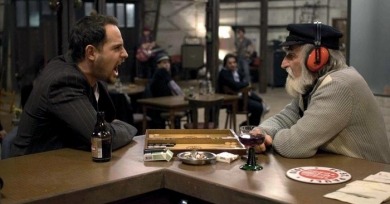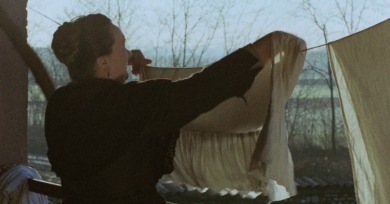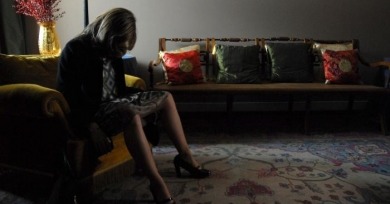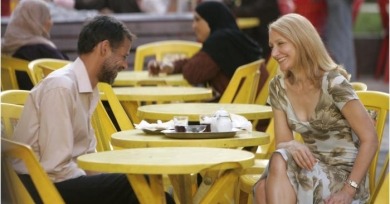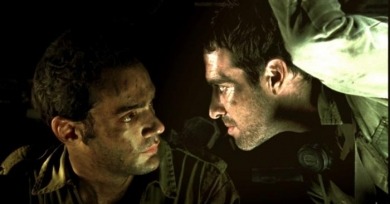Reviews
At this point, it’s safe to say François Ozon is clearly neither the rabble-rousing enfant terrible he first seemed nor the stealth subversive mainstream filmmaker he might have evolved into.
For a good 20 minutes or so, Ilisa Barbash and Lucien Castaing-Taylor’s experiential documentary Sweetgrass appears to be predominantly about sheep.
A Woman, a Gun and a Noodle Shop manages the headache-inducing feat of both amplifying the Coen Brothers’ worst directorial tendencies and mixing them with Zhang Yimou at his most bombastically hollow.
This isn’t a real documentary, of course, and it’s not even the TV show Ghost Hunters, which suspends judgment either in favor of or against the otherworldy. It’s a horror film, and by speaking those words, Marcus effectively seals his fate.
Llosa’s sophomore effort, which also won the Golden Bear at the 2009 Berlin film festival, never succumbs fully to cliché. Fausta’s confidence grows intermittently; each step forward comes at a price.
After 243 minutes of film, spread over two parts, the audience for Jean-François Richet’s much heralded and decorated 2008 movie (three Césars, including Best Actor and Director) could be forgiven for wondering wistfully how Godard’s version might have turned out.
Narrative will show up in footage taken by an unmanned surveillance camera or a satellite, not to mention when there are humans deciding what’s in the frame and for how long, and what ends up on the cutting-room floor.
International culture-clash movie narratives used to be about bridging gaps, language barriers, righting wrongs, learning, healing. How times have changed.
Watching Mao’s Last Dancer, Bruce Beresford’s adaptation of Chinese-Australian ballet star Li Cunxin’s memoir, you might find yourself forgetting that ballet is an art.
German-Turkish director Fatih Akin’s penchant for over-peppering his plots with contrivance and forced convolution would seem to have found the perfect fit in the high-decibel comic confection Soul Kitchen.
Unlike Olmi’s more straightforwardly realist depiction of the hopeful beginnings of a clerical worker en route to a humdrum existence in his heartachingly lovely breakthrough Il Posto, Wooden Clogs—which won the Palme d’or at Cannes in 1978—contains moments of idyllic allure.
Manoel de Oliveira’s Eccentricities of a Blonde Hair Girl, huggable at 64 minutes, occupies the filmmaker’s by-now familiar nether-Lisbon, in which lives are lived simultaneously in 1609, 1909, and 2009.
Canadian writer-director Ruba Nadda’s Cairo Time, like her last feature, Sabah: A Love Story, superficially explores Arab and Western relations on a microcosmic scale, as played out in a romance between a man and woman gazing at one another from across the cultural divide.
While on its very thin surface Samuel Maoz's feature debut takes Israel’s ill-considered 1982 invasion of Lebanon as its subject, the film is more Rear Window than Platoon, and gives new meaning to the phrase “theater of war.”
